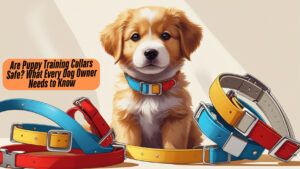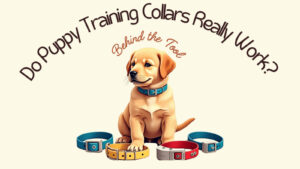When it comes to ensuring the health and well-being of your toy breed dog, choosing the right veterinarian is crucial. Toy breeds, like Chihuahuas, Pomeranians, and Yorkies, have unique needs that require specialized care and attention. Selecting the right vet can make a significant difference in your dog’s overall health and happiness. In this guide, we’ll explore the key factors to consider when choosing the right vet for your toy breed dog.
Understanding Toy Breeds: Unique Characteristics and Health Needs
Toy breeds are small dogs, typically weighing under 10 pounds, known for their compact size, big personalities, and delicate frames. While their small size makes them adorable, it also presents certain challenges when it comes to their health and care. These breeds can suffer from specific conditions that are less common in larger dogs, making it essential to find a vet who is familiar with their particular needs.
Characteristics of Toy Breeds
Toy breeds are often very affectionate, social, and highly intelligent. They tend to form strong bonds with their owners and enjoy being the center of attention. These dogs are also generally quite active and alert despite their size, though they require extra attention when it comes to physical activities and exercise.
Health Concerns Specific to Toy Breeds
Due to their small size, toy breed dogs are more prone to specific health issues, including:
- Dental Problems: Small mouths often lead to overcrowded teeth, which can increase the risk of dental disease.
- Patellar Luxation: This condition involves the dislocation of the kneecap, which can lead to limping and discomfort.
- Tracheal Collapse: Toy breeds have small tracheas, which can sometimes collapse, leading to coughing and breathing issues.
- Heart Conditions: Many toy breeds are prone to heart murmurs and other heart-related issues.
A vet with experience treating toy breeds will understand how to address these issues and provide preventive care that aligns with the breed’s unique characteristics.
Vet Specialization: Experience with Small Dogs

When selecting a vet for your toy breed dog, experience matters. While most vets can care for a variety of dog breeds, it’s essential to find one who has specific experience with small breeds. A vet with expertise in toy breeds will have a better understanding of their delicate nature and health concerns.
Why Vet Specialization Matters
Toy breed dogs often require different treatment approaches than larger dogs. They may need specialized dental care, joint protection, or respiratory monitoring due to their small size. A vet who regularly works with toy breeds will be better equipped to detect and treat these conditions early. They will also be familiar with the particular precautions needed when handling smaller dogs during examinations and procedures.
Signs of a Vet Who Understands Toy Breeds
Here are a few signs that a vet is experienced with toy breeds:
- Gentle Handling: They will know how to gently handle small dogs during examinations without causing stress or injury.
- Knowledge of Small Dog Health: A knowledgeable vet will discuss preventive measures for common health issues in toy breeds, such as dental disease or tracheal collapse.
- Proper Tools: The vet will have tools and equipment designed for small dogs, ensuring safe and effective treatment.
How to Research and Find a Good Vet for Toy Breeds
Finding the right vet for your toy breed dog begins with research. There are several ways to gather information and assess potential vets before making a final decision.
Personal Recommendations and Word of Mouth
Start by seeking recommendations from friends, family, or fellow dog owners, particularly those with toy breeds. Dog breeders, local dog clubs, and pet groomers can also provide useful recommendations. If you belong to breed-specific groups on social media or forums, ask other members for advice on vets who specialize in toy breeds.
Online Reviews and Testimonials
In addition to personal recommendations, take time to read online reviews and testimonials. Platforms like Google, Yelp, and Facebook can give you insight into other pet owners’ experiences with local vets. Look for reviews that mention the vet’s experience with small dogs and how they handled special needs. If a vet consistently receives positive feedback from owners of toy breed dogs, it’s a good indication they are well-suited for your pet.
Checking for Certifications and Accreditations

Ensure that the vet you’re considering is accredited by a recognized veterinary body. In the U.S., the American Animal Hospital Association (AAHA) accredits veterinary practices that meet high standards of care. This accreditation ensures the clinic maintains high-quality care in all areas of veterinary services, including diagnostic tools, safety, and cleanliness.
What to Expect During Your First Visit
The first visit to a new vet is a chance for both you and your pet to get comfortable with the clinic and the staff. During the visit, observe the clinic’s atmosphere and how the vet interacts with your dog.
Initial Consultation and Comfort Level
During your first consultation, take note of how the vet interacts with your toy breed dog. Does the vet handle your dog gently and calmly? Does the dog seem relaxed or stressed during the examination? A good vet will ensure that your pet is at ease and not overwhelmed.
Ask About the Vet’s Approach to Care for Toy Breeds
Use the first visit as an opportunity to ask questions. Inquire about the vet’s experience with toy breed dogs and their approach to preventive care. Ask about common procedures, such as vaccinations, dental care, and parasite prevention. This conversation will help you assess whether the vet’s approach aligns with your dog’s needs.
Clinic Environment: Cleanliness, Location, and Accessibility
The environment of the clinic is also a key consideration when choosing a vet. A clean, organized, and well-equipped clinic is a good sign of a reputable veterinary practice.

Facility Tour
When visiting the clinic, check for cleanliness and organization. A well-maintained clinic shows attention to detail and a commitment to quality care. Ensure the clinic has separate areas for different types of patients, such as healthy pets and those with contagious diseases, to minimize the risk of cross-contamination.
Location and Hours
Choose a clinic that is conveniently located near your home. This will make it easier for you to visit regularly and access the clinic in case of an emergency. Additionally, ask about the clinic’s hours of operation, and check if they offer emergency services after hours.
Specialized Services and Emergency Care
Having access to specialized services is essential when it comes to caring for toy breed dogs. These dogs may require more specialized treatments, such as dental cleanings, orthopedic care, or cardiology.
Access to Advanced Care
Some veterinary clinics offer advanced diagnostic services, such as X-rays, ultrasounds, and blood work. This is especially important if your toy breed dog has any underlying health conditions that need to be monitored regularly. A vet who has the necessary tools and expertise to perform these procedures will be better equipped to detect potential issues before they become serious.
After-Hours and Emergency Services
Toy breeds are prone to accidents and health emergencies due to their small size. It’s important to know if your vet offers after-hours care or has an emergency plan in place. If the clinic is unable to provide emergency services, ensure they have a relationship with a nearby 24-hour emergency clinic.
Cost, Insurance, and Payment Plans
Veterinary care can be costly, so it’s essential to understand the costs involved before making a decision. Be sure to ask about the pricing for routine visits, vaccines, and any additional services that may be necessary.
Understanding Vet Costs

It’s a good idea to ask for an estimate of the costs for common services like vaccinations, dental cleanings, and spaying or neutering. Keep in mind that some procedures may be more expensive due to the complexity of treating toy breeds.
Pet Insurance and Payment Plans
If you have pet insurance, check if the clinic accepts it. Many clinics work with insurance providers to help cover medical expenses. Additionally, inquire about payment plans or financing options if you need assistance covering large bills.
Building a Relationship with Your Vet
Once you’ve found the right vet, it’s important to establish a long-term relationship. Regular visits and open communication with your vet will help ensure that your toy breed dog receives the best care throughout their life.
Establishing a Long-Term Care Plan
Work with your vet to develop a care plan that includes regular check-ups, vaccinations, and preventive treatments. This plan should be updated as your dog ages, as their health needs may change over time.
Conclusion
Choosing the right vet for your toy breed dog is a decision that should not be taken lightly. By considering factors like vet experience, clinic reputation, specialized services, and the overall comfort of your pet, you can ensure that your dog receives the best care possible. With the right vet, your toy breed dog will live a long, healthy, and happy life by your side.




